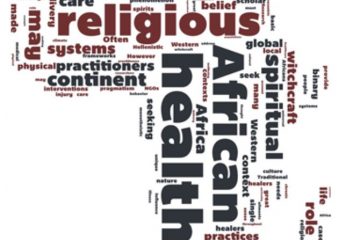To find out whether solidarity could play a role in societal efforts to reduce health inequalities, in this blog I will take you along in my journey across the main drivers of public health actions. We will discover the role public health ethics plays and how it differs from traditional well-known bioethics, only to find out solidarity is one of its main moral values. Finally, literature about solidarity’s potential will bring us back to the beginning: why aren’t we serious about solidarity?
From Solidarity’s Power to Public Health Ethics
This week, I met my friend, Clara, who told me about her duties in a local organization she has recently joined, in which volunteers come together to gather groceries from donors and distribute them among disadvantaged neighbors. Little did she know that what was supposed to be a regular catch-up over coffee had been the kickstart of my journey tackling the query she had unintentionally sown in me: Why aren’t we serious about solidarity? These people are making a change in their community and are solely moved by pure solidarity towards the less privileged among them. Having come to this realization, I have been trying to find out whether solidarity’s power could also play a role in societal efforts to reduce health inequalities.
Given the fact that public health is the discipline approaching health from a population’s perspective, I started by trying to understand how it works. According to WHO Europe, public health actions should “promote greater health and well-being in a sustainable way while strengthening integrated services and reducing inequalities”. That is, these actions extend beyond the clinical context. Furthermore, by focusing on the population level, they depend on the setting as both available resources and needs vary across populations. After realizing this fact, a new, more specific question came to me: does that mean that public health decisions are guided by relative or arbitrary principles and values? I continued researching only to find out that there is a whole ethical discipline devoted to the topic. This is how I learned about public health ethics and how it is not only independent, but also detached, from traditional medical bioethics and its four well-known principles of beneficence, non-maleficence, autonomy, and justice.
Detaching from Traditional Values: Solidarity to the Rescue
At this point of the rationale, I started to feel a bit overwhelmed, but the idea ended up being much simpler than it had seemed when hidden behind the academic terminology. Bioethics places much emphasis on individual freedom and protection, but how could public health ethics behave similarly when some policies might limit a person’s freedom to bring significant benefit for loads of other people? For example, I see my freedom compromised every month when part of my salary, which I gained through hard work, is taken away from me to fund the public services. However, the benefits this action brings to everybody else living in my country that take advantage of those services make it ethical. Once I grasped this fundamental conflict between traditional medical ethics and public health ethics, it became clear that liberal values are not enough and there is a need for community’s collective values to guide the interplay of individual, community, national and global frameworks.
As complex as that last sentence might come across, it only means that person-centered values do not satisfy the need for principles to guide population-centered decisions and that this is relevant at every level, from each individual to the global community. Public health ethics requests its moral norms based on its values and here is where everything made sense again: solidarity is commonly cited in the public health literature as a key concept. The most widely accepted working definition of solidarity was developed in 2011 by Prainsack and Buyx, stating it as “shared practices reflecting a collective commitment to carry ‘costs’ (financial, social, emotional, or otherwise) to assist others”. Other authors generally relate solidarity to affirming the moral standing of others and their membership in a community of equal dignity and respect, which simultaneously relates it to how united, connected, and cooperative society is.
Solidarity is a Tool we are Failing to Use
In other words, solidarity is considered a structural issue that allows for collective efforts to achieve a common good. This new piece of information added more to my inquisitiveness and, as I further decided to continue my quest, I encountered West-Oram and Buyx’s paper on global health solidarity. They claim that health threats such as infectious diseases unmask similarities between even distant people, having the potential to catalyze global solidarity. This re-energized solidarity would lead to acknowledging that preservation of domestic public health relies on successful global public health, and this realization would, in turn, lead to the establishment of cooperative global health infrastructures. One of the conclusions I reached is that solidarity is not just a choice to make, but also a tool with a unique power: measures to protect everyone stop being a burden imposed on ‘us’ to benefit ‘them’ and they turn into the means to protect ‘us all’.
It may seem that my initial query, the one that gave the title to this article, had already been answered, and with a quite positive outcome: solidarity is strongly considered by public health ethics experts as a key-value powering the machines that run the efforts towards health equity. Nevertheless, I am pretty disappointed as I write this that I was not satisfied- nor am I now- with the answers I have found. We claim that we will Leave No One Behind while pursuing global health goals, yet health inequities have only increased during the COVID-19 pandemic and those already left behind have been pushed further behind. If solidarity does have power and if we have realized and studied it, how is it possible that it has not been upheld in the global health arena? If solidarity is such a unique tool, how are we not using it?
The end of the journey took me back to the very beginning: why aren’t we serious about solidarity?



0 Comments